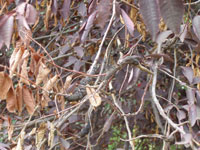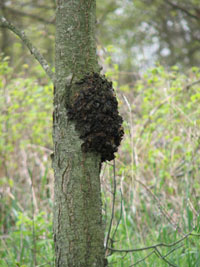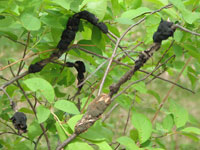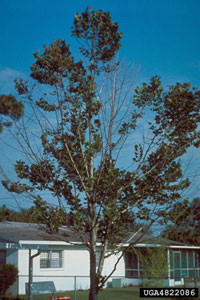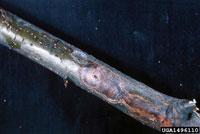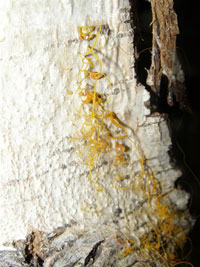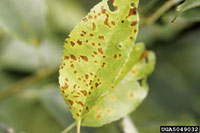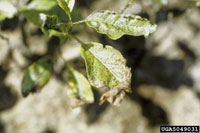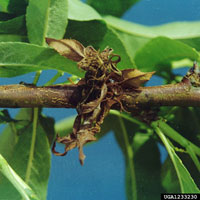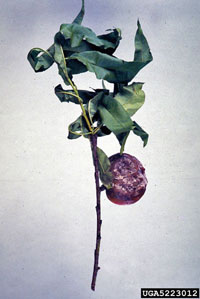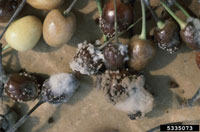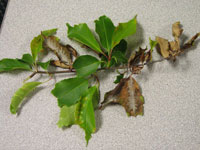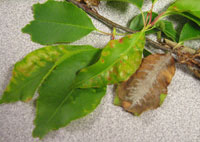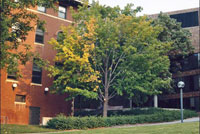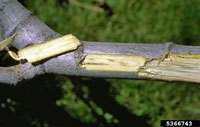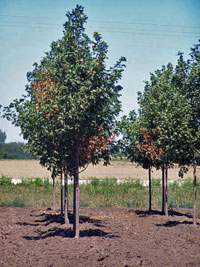Extension > Garden > Diagnose a problem > What's wrong with my plant? > Deciduous Trees > Prunus > Leaves discolored yellow to brown
Prunus > Leaves > Leaves discolored yellow to brown
1 of 6
Black knot
Apiosporina morbosa
- Lumpy olive to black elongate swellings along all sizes of twigs
and branches - Gall formation may cause leaves to wilt or not leaf out showing branch dieback
- Rough black cracked swelling can occur on the main trunk
- Most common on choke and pin cherry
- More information on Black knot
2 of 6
Branch cankers
Valsa leucostoma, Leucostoma spp.
- Leaves on random branches wilt, turn yellow then brown
- Cankers are brown to black sunken areas on branch that may have cracked bark and discolored reddish brown sapwood
- Sticky gum exudes from branch cankers
- Infected branches don't leaf out in spring
- Random dead branches seen throughout canopy
- Raised black pimple like fungal structures form on cankers and dead branches, exude orange tendrils of spores in wet weather
- Common on trees stressed by drought, winter injury, wounds, insect feeding or other factors
- More information on canker
3 of 6
Leaf spot
Blumeriella jaapii
- Leaves with multiple spots turn yellow and fall off prematurely
- Spots grow together, causing large parts of the leaf to turn brown
- Purple to reddish brown spots that are up to 1/10th inch diameter
- Leaf spots dry up and fall out, leaving holes in the leaf, leave appear to have shot holes
- Damage first seen in late spring, early summer
- More information on Leaf spot
4 of 6
Brown rot
Monilinia fructicola
- Sudden browning of blossoms or wilting of leaves
- Sunken, darkened areas on twigs from which gums are exuded, also known as gummosis
- Part or all of the ripening fruit develop a soft brown rot, then become shriveled and dusted with powdery tufts of tan to gray spores
- Rotten fruit may remain attached to the tree or fall to the ground
- More information on Brown rot
5 of 6
Leaf curl
Taphrina wiesneri
- Leaves have thick puckered to curled spots that are yellow to reddish brown
- Diseased leaves droop, turn brown and die as the disease progresses
- Witches brooms, clusters of small twigs arising from a swollen area of the branch, form on some infected trees
- Common on wild cherry trees
- More information on Leaf curl
6 of 6
Verticillium Wilt
Verticillium dahliae
- Leaves turn brown from the edges and tips, then wilt and die in severe infections
- Leaf symptoms are often seen on only one or a few random branches in the canopy
- Leaves are small and yellowed in chronic infections
- Dark streaks can be seen in the sapwood if the bark is peeled back, appearing as rings or arcs in a cross cut
- Symptoms may develop over a single growing season, or over several years
- More information on Verticillium Wilt



